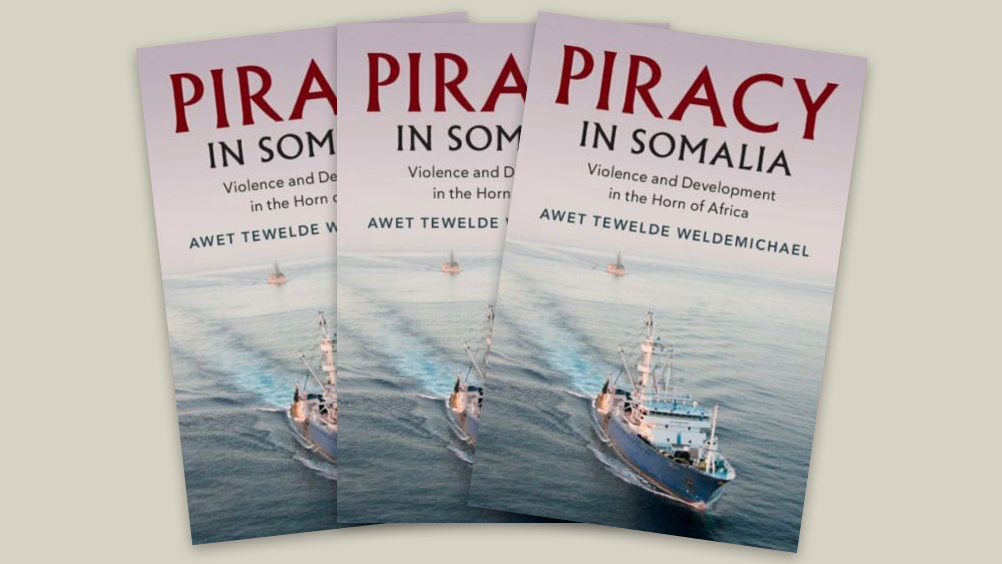Modern-day Piracy in the Horn of Africa: The Focus of Public Webinar at GU-Q

To shed light on the root causes and consequences of modern-day piracy around the Horn of Africa, QF partner GU-Q organized a public research webinar on March 18, 2021, at 5:00 PM (Qatar time) featuring Dr. Awet T. Weldemichael, a professor of history at Queen’s University, Canada, for a discussion of his book, Piracy in Somalia: Violence and Development in the Horn of Africa.
The live webinar discussion, convened by Dr. Phoebe Musandu of GU-Q and moderated by Dr. Afyare Elmi from Qatar University, was organized by scholars of the Indian Ocean Working Group (IOWG) at GU-Q. The research group seeks to bring together multidisciplinary scholars from Qatar and around the world to explore the people and places of the Indian Ocean World, a zone of complex human interaction throughout world history.
Modern piracy off the coast of Somalia in the Gulf of Aden and surrounding waters has made headlines as a hotspot of shipping attacks. While international efforts have reduced the frequency of piracy over the past decade, misunderstanding of the issues that gave rise to it has continued.
In his talk, Dr. Weldemichael drew on his extensive fieldwork to address these misunderstandings, and gave context to an illegal maritime practice he describes as demonized in the media and often oversimplified in many scholarly and policy works. He shared research that captures the experiences of the local communities who have been most impacted by illegal fishing, piracy and counter-piracy, and exposed the complex world of piracy that includes layers of beneficiaries well beyond the pirates themselves.
“This webinar provided intellectual insights into the existing and emerging research relative to the region, and built on a previous IOWG event on piracy to provide a deeper understanding of a complex phenomenon that has contemporary relevance, and which is too often reduced to its criminal elements,” said Dr. Musandu.
Dr. Weldemichael earned a Ph.D. from the University of California, Los Angeles, and his research focus is on contemporary Northeast and East Africa and Island Southeast Asia; imperialism; colonialism; decolonization; revolutions and nationalist movements; peace, conflict and security research.
Since 2014, the Indian Ocean Working Group at GU-Q has convened researchers from across the world to build collaborative expertise across the boundaries of traditional area studies to remap the Indian Ocean World. Following its inception, the Indian Ocean Studies collective has hosted conferences, symposia, and monthly reading group meetings, bringing together scholars from Asia, Africa, the Middle East, Europe, North America as well as Doha-based institutions.